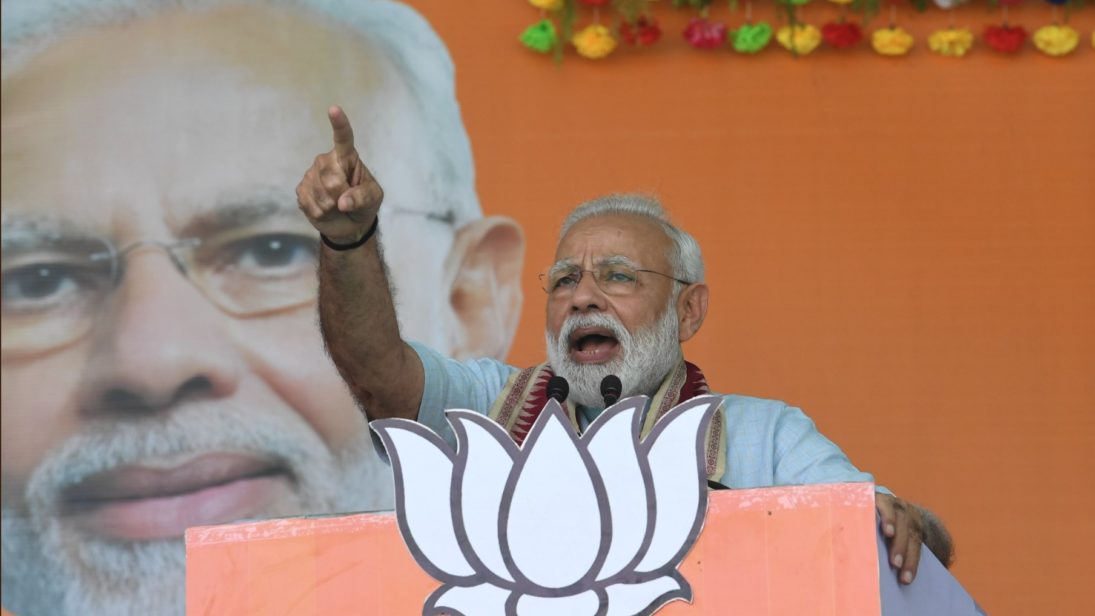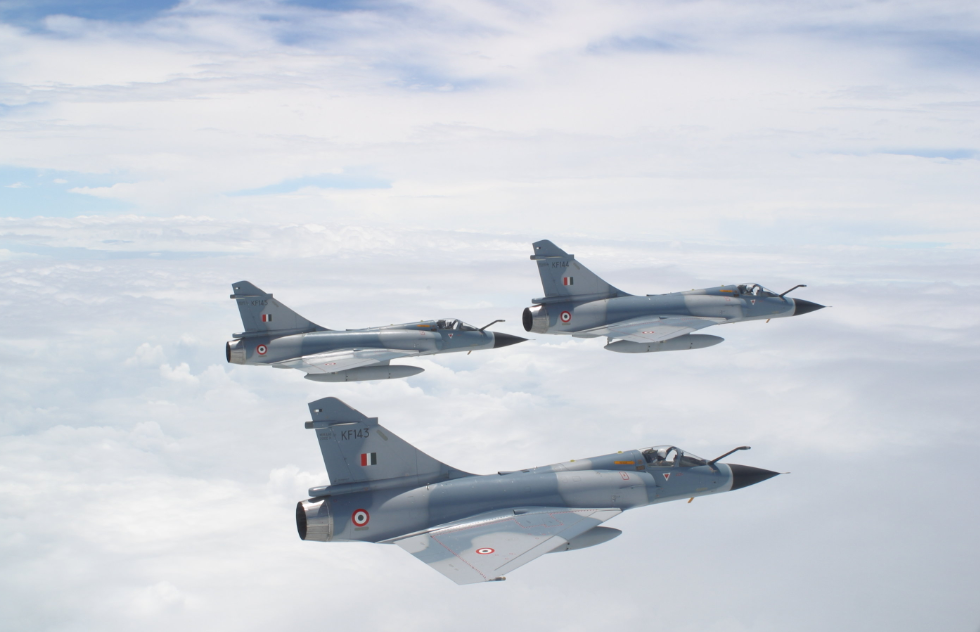
On February 26, when India struck a terror camp inside Pakistan in response to the February 14 suicide bombing that killed 40 Central Reserve Police Force (CRPF) troopers in Pulwama in Indian-administered Kashmir, political pundits opined that the rare air strike would boost Prime Minister Narendra Modi’s electoral fortunes. They argued that his Bharatiya Janata Party (BJP)-led government was being pilloried with charges of having mismanaged the economy, of being unable to create adequate new jobs, and of bungling the Rafale deal but the strike against Pakistan had helped distract public attention. Six weeks later, as the country prepares for the 2019 general elections, the question is: do Pulwama and Balakot still matter? And is this India’s national security election?
In a country as large and diverse as India, it is nearly impossible to predict the salience of any one election issue over others. However, historically, the electoral impact of security and foreign policy issues has been limited, as several scholars and analysts have pointed out. For example, Roshan Kishore has analyzed the electoral fate of ruling parties in India in the immediate aftermath of military conflicts and found a mixed bag. Neelanjan Sircar specifically looked at the 1999 general election, which was held soon after India secured a decisive win in the Kargil War, and found that even though the BJP returned to power, the military confrontation against Pakistan was not an electoral game-changer. Other analysts like Aditya Menon and Soroor Ahmed have also come to the same conclusion.
To a certain extent, Pulwama/Balakot has been no different. After the predictable jump in nationalist sentiment in the immediate aftermath of the February 14 attack in Pulwama and the February 26 retaliatory airstrike in Balakot, several polls show that the issue has since subsided from the public agenda. However, it is interesting to note that even though national security is not on the people’s electoral priority list, the approval rating of Prime Minister Narendra Modi has continued to soar on the back of his security credentials.
For example, the Centre for the Study of Developing Societies(CSDS)-Lokniti survey done in the last week of March found that 43 percent preferred Modi as the next prime minister (compared to 34 percent in May last year) though only 2 percent saw national security as the single most important issue for the election. In contrast, nearly 21 percent consider unemployment while 17 percent pointed to development as the key electoral issue. India Today’s Political Stock Exchange poll also showed that while Modi was able to leverage the Balakot air strikes and his popularity steadily rose from 46 percent in October last year to 48 percent in January to 53 percent in April, it is unemployment, and not national security, that voters see as the most important electoral issue followed by water and cleanliness.
Yet, Modi and his team have continued to place national security at the heart of their election strategy. There are three reasons for this: first, even Modi’s hardest critics acknowledge that it is in this area that the government’s credentials are the strongest. In the public’s assessment too, it is here that Modi has broken new ground and gone where few others have tread before him (whereas the popular response to the prime minister’s other big bang initiatives such as demonetization or the Goods and Services Tax have been more checkered). Hence, the BJP’s effort to keep the focus on national security.
Second, the opposition has done a shoddy job of puncturing Modi’s security narrative. India’s main opposition party, the Indian National Congress, has struggled to make any of its criticisms of the BJP’s security policies–be it with regard to Kashmir, China, or Pakistan–resonate with the public, even though scholars and analysts have found flaws aplenty in the ruling party’s policies. It was only on the Rafale deal that the Congress was making some progress with regard to challenging Modi. But that too didn’t go very far due to the Congress party’s own history of corruption, particularly in defense deals (think Bofors), as well as Modi’s reputation as a clean politician.
Traditionally, security has not had a direct electoral impact in India because these issues generally have low salience for a population that is still trying to fulfill its basic needs of food, clean water, housing, and education/jobs. However, there is little doubt that this time around, large sections of the public have participated wholeheartedly in the national security conversation.
Third and most importantly, Modi and his team have made a concerted effort to take discussion and debate of national security issues beyond the Delhi-based security elite and make it accessible to the masses. This has been possible in part because, as Ashutosh Varshney notes, a large part of the population is now firmly middle class and connected to the Internet, and therefore, receptive to issues that are not traditionally part of “mass politics.” But that’s not all. The government on its part has also carefully built up a national security narrative from the very beginning of its term. For example, within a year of taking office, after Naga militants operating along the India-Myanmar border killed 18 Indian soldiers in Manipur in 2015, Modi authorized a rare cross-border retaliatory raid. The operation was well-publicized and earned the government high praise for undertaking the sort of counterinsurgency action for which there had only been limited political appetite in the past.
In 2016, Modi upped the ante by carrying out a similar “surgical strike” in Pakistan-administered Kashmir, in response to the attack in Uri that killed 19 soldiers. The operation further reinvigorated his security credentials, and since then, Team Modi has sought to ensure that the ‘legacy,’ for want of a better word, of the surgical strikes does not fade from popular memory. For example, in 2018, the government organized an official celebration to mark the second anniversary of the “surgical strikes” (though it had let the first one pass quietly). Unlike staid government events, this one had a carnival-esque feel with a three-day exhibition featuring actual footage from the strikes, a selfie zone, and performances by Bollywood singers who even wrote an anthem to the mark the occasion. The Bollywood film based on the strikes was released in January and has done well at the box office. Notably, the rallying cry of the film– “How is the josh?”, which loosely translates to “how is the (national) spirit?” was picked up and reiterated by several political figures including the prime minister. The post-Uri operation was no longer just a daring cross-border raid—it had transcended conversations among the strategic community about deterrence and counterterrorism to become a part of India’s popular cultural.

Then came the Balakot strikes, still hotly being debated in security circles. Here too, while analysts were scrutinizing satellite imagery, counting fighter jets, and searching for missing pilots, the public focused on Wing Commander Abhinandan Varthaman, who had been taken into Pakistani custody. Upon his return, he was feted as a national hero. Newborns were named after him, his iconic moustache became an instant hit, and soon enough he even appeared on the ruling party’s election posters.
Then on March 27, India conducted an anti-satellite (ASAT) missile test, which generally may not have generated much public excitement but Modi went the extra mile, announcing the test in a direct address to the nation. Though an important development, the test didn’t merit a prime ministerial speech in the way that, say, demonetization did in 2016, directly impacting the lives of every person in the country. And yet Modi announced the test himself, ensuring that the news gets full attention; he carefully framed the test as a technological breakthrough that benefits all of society and labeled it “Mission Shakti” to establish equivalence with the 1998 nuclear tests of the same name that marked India’s entry into the club of nuclear-armed nations. Later, at an election rally, he also referred to the ASAT test as a “surgical strike in space”—which fits in neatly with the idea of the surgical strike on land (post-Uri) and in the sky (Balakot)—effectively tying together the government’s main security achievements in one neat, catchy phrase.
Whether the electorate will respond to Modi and the BJP’s messaging on national security by way of voting remains to be seen. Traditionally, security has not had a direct electoral impact in India because these issues generally have low salience for a population that is still trying to fulfill its basic needs of food, clean water, housing, and education/jobs. However, there is little doubt that this time around, large sections of the public have participated wholeheartedly in the national security conversation–and to that extent, this has indeed been India’s national security election.
Image 1: Narendra Modi via Twitter
Image 2: Indian Air Force (cropped)


